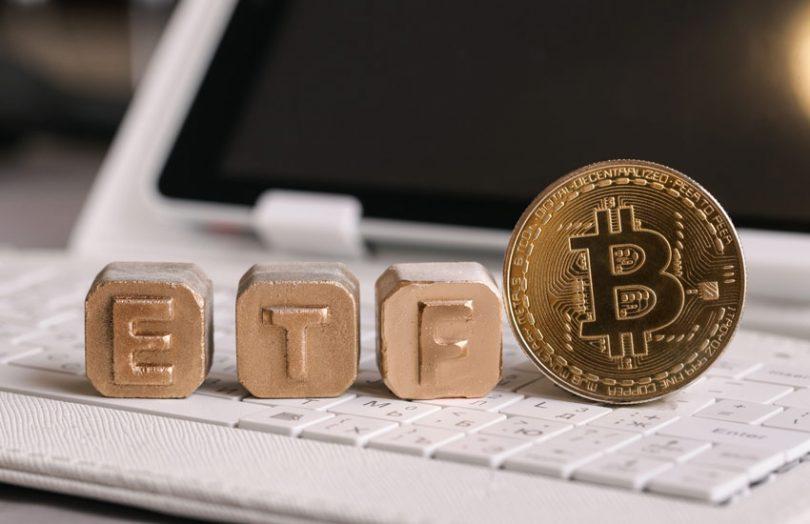Top 10 intriguing Things That Make Ethereum ETF Different From Bitcoin ETFs
An Ethereum ETF is a financial product that allows investors to gain exposure to the price movements of Ethereum, the second-largest cryptocurrency by market capitalization, without actually owning the underlying asset. ETFs are traded on stock exchanges, making them accessible to a wide range of investors through their brokerage accounts. The creation of an Ethereum ETF represents a significant development in the cryptocurrency space, as it provides a regulated and more traditional investment vehicle for those interested in participating in the Ethereum market.
Investing in an Ethereum ETF offers several advantages. Firstly, it allows investors to diversify their portfolios by gaining exposure to a different asset class. Additionally, ETFs are typically more liquid than directly holding cryptocurrencies, as they can be bought and sold throughout the trading day on exchanges. Furthermore, ETFs provide a level of convenience and familiarity for investors who may be hesitant to navigate the complexities of cryptocurrency exchanges and wallets.
However, there are also some considerations and risks associated with Ethereum ETFs. One concern is the potential for price volatility, as cryptocurrencies are known for their rapid price fluctuations. Additionally, regulatory uncertainty and the evolving nature of the cryptocurrency market could impact the performance and availability of Ethereum ETFs. Furthermore, investors should be mindful of the fees associated with ETFs, including management fees and trading costs.
Despite these risks, the introduction of an Ethereum ETF signifies a growing acceptance and mainstream adoption of cryptocurrencies within the traditional financial system. It provides investors with a regulated and accessible way to invest in Ethereum, tapping into its potential for growth and innovation in the digital economy. As with any investment, individuals considering an Ethereum ETF should conduct thorough research and consult with financial professionals to assess its suitability within their overall investment strategy.
Also, read- Understanding The Important Top 10 Difference Between Blockchain ETFs And Bitcoin ETFs
Bitcoin ETFs
A Bitcoin Exchange-Traded Fund (ETF) is a financial product designed to provide investors with exposure to the price movements of Bitcoin, the first and most well-known cryptocurrency. Functioning similarly to traditional ETFs, Bitcoin ETFs enable investors to buy and sell shares that represent ownership of Bitcoin without needing to directly hold or manage the digital currency themselves. This offers several advantages, including accessibility, liquidity, and regulatory oversight.
One of the primary benefits of investing in a Bitcoin ETF is accessibility. Through brokerage accounts, investors can easily buy and sell shares of a Bitcoin ETF, just like they would with traditional stocks or ETFs. This accessibility opens up Bitcoin investment opportunities to a broader range of investors, including those who may be unfamiliar with cryptocurrency exchanges or hesitant to manage digital assets directly.
Bitcoin ETFs also provide liquidity, as they trade on established stock exchanges during regular trading hours. This means investors can buy or sell their shares quickly and at prevailing market prices, without the potential liquidity challenges associated with trading Bitcoin directly on cryptocurrency exchanges.
Moreover, Bitcoin ETFs typically come with regulatory oversight, providing investors with a level of comfort and security. Regulatory approval requires adherence to specific standards and compliance measures, which can mitigate some of the risks associated with investing in cryptocurrencies. Additionally, regulatory oversight may attract institutional investors who are subject to strict compliance requirements.
However, investing in Bitcoin ETFs also comes with its own set of considerations and risks. The price of Bitcoin can be highly volatile, leading to significant fluctuations in the value of ETF shares. Furthermore, regulatory uncertainty and changes in the cryptocurrency landscape could impact the availability and performance of Bitcoin ETFs.
Bitcoin ETFs offer a convenient and regulated way for investors to gain exposure to the potential growth and innovation of Bitcoin without directly holding the digital currency. While they provide accessibility, liquidity, and regulatory oversight, investors should carefully consider the risks and conduct thorough research before investing in Bitcoin ETFs.
Top 10 things that make Ethereum ETF different from Bitcoin ETFs

- Underlying Asset: The most obvious difference is the underlying asset. Ethereum ETFs track the price movements of Ethereum (ETH), the second-largest cryptocurrency by market capitalization, while Bitcoin ETFs track the price movements of Bitcoin (BTC), the largest cryptocurrency by market capitalization.
- Technology and Purpose: Ethereum and Bitcoin have different technological foundations and purposes. While Bitcoin primarily serves as a decentralized digital currency, Ethereum is a blockchain platform that enables the creation of smart contracts and decentralized applications (DApps).
- Smart Contract Functionality: Ethereum’s smart contract functionality sets it apart from Bitcoin. Ethereum allows developers to build and deploy smart contracts, which are self-executing contracts with the terms of the agreement directly written into code. Bitcoin does not have native support for smart contracts.
- Transaction Speed and Scalability: Ethereum generally has faster transaction times and higher throughput compared to Bitcoin. Ethereum’s average block time is around 13-15 seconds, whereas Bitcoin’s is around 10 minutes. Ethereum is also actively working on scalability solutions like Ethereum 2.0 to increase its transaction throughput.
- Consensus Mechanism: Ethereum currently uses a Proof of Work (PoW) consensus mechanism, similar to Bitcoin. However, Ethereum is transitioning to a Proof of Stake (PoS) consensus mechanism with Ethereum 2.0, which is expected to improve scalability and energy efficiency compared to Bitcoin’s PoW.
- Token Standards: Ethereum introduced token standards like ERC-20, ERC-721, and ERC-1155, which have enabled the creation of various tokens, including fungible tokens, non-fungible tokens (NFTs), and semi-fungible tokens. Bitcoin does not have native support for token creation.
- Development Ecosystem: Ethereum has a more extensive development ecosystem compared to Bitcoin. This ecosystem includes a wide range of decentralized applications, decentralized finance (DeFi) protocols, and NFT marketplaces built on top of the Ethereum blockchain.
- Upgrades and Roadmap: Ethereum has a more active development roadmap with frequent upgrades and improvements compared to Bitcoin. Ethereum’s transition to Ethereum 2.0 aims to address scalability, security, and sustainability concerns, whereas Bitcoin’s development tends to focus more on maintaining its core principles.
- Market Dynamics: Ethereum’s market dynamics, including its price volatility, correlation with Bitcoin, and market sentiment, can differ from those of Bitcoin. Factors such as network usage, developer activity, and ecosystem growth can influence Ethereum’s price independently of Bitcoin.
- Investor Perception and Adoption: Ethereum ETFs may attract investors with different preferences, risk appetites, and investment strategies compared to Bitcoin ETFs. Some investors may be more interested in Ethereum’s technological innovations and potential use cases beyond digital currency, while others may view Bitcoin as a more established store of value.
COINBASE PUSHES FOR LISTING OF GRAYSCALE ETHEREUM TRUST
— Crypto Town Hall (@Crypto_TownHall) February 23, 2024
Coinbase urged the SEC to approve listing of Grayscale Ethereum Trust for trading.
The approval could pave the way for spot ether ETFs, offering investors exposure without direct asset ownership.
Source: The Block pic.twitter.com/Nbc5OX6EYK
Importance of Ethereum ETFs and Bitcoin ETFs

Ethereum ETFs and Bitcoin ETFs play significant roles in the cryptocurrency market and broader financial landscape for several reasons:
- Accessibility: ETFs provide a familiar and accessible way for traditional investors to gain exposure to cryptocurrencies like Ethereum and Bitcoin. Through brokerage accounts, investors can buy and sell ETF shares just like they would with stocks, without needing to navigate cryptocurrency exchanges or manage digital wallets.
- Regulatory Oversight: ETFs typically come with regulatory oversight, providing investors with a level of security and confidence. Regulatory approval requires adherence to specific standards and compliance measures, which can mitigate some of the risks associated with investing in cryptocurrencies. This oversight may attract institutional investors who are subject to strict compliance requirements.
- Liquidity: ETFs trade on established stock exchanges during regular trading hours, providing liquidity and ease of trading for investors. This liquidity is particularly important in the cryptocurrency market, which can be prone to periods of volatility and illiquidity.
- Diversification: Ethereum ETFs and Bitcoin ETFs offer investors the opportunity to diversify their portfolios by gaining exposure to a different asset class. Cryptocurrencies have historically exhibited low correlation with traditional asset classes like stocks and bonds, making them potentially valuable diversification tools.
- Market Integration: The introduction of Ethereum ETFs and Bitcoin ETFs represents a step towards greater integration of cryptocurrencies into the traditional financial system. As regulated investment products, ETFs help legitimize the cryptocurrency market and make it more accessible to mainstream investors.
- Price Discovery: ETFs can contribute to price discovery in the cryptocurrency market by providing a transparent and regulated mechanism for buying and selling Ethereum and Bitcoin. This price discovery process helps establish fair market prices and reduces the potential for market manipulation.
- Institutional Adoption: The availability of Ethereum ETFs and Bitcoin ETFs may encourage greater institutional adoption of cryptocurrencies. Institutional investors, such as hedge funds, asset managers, and pension funds, often have mandates or regulatory requirements that limit their ability to directly invest in cryptocurrencies. ETFs provide a regulated investment vehicle that may satisfy these requirements.
Overall, Ethereum ETFs and Bitcoin ETFs serve as important tools for investors looking to participate in the cryptocurrency market while benefiting from the oversight, liquidity, and accessibility offered by traditional financial markets. Their introduction represents a significant development in the ongoing integration of cryptocurrencies into the global financial system.
Conclusion
In conclusion, Ethereum ETFs and Bitcoin ETFs hold considerable importance in the cryptocurrency market and broader financial landscape. These investment vehicles offer accessibility, regulatory oversight, liquidity, and diversification opportunities for investors interested in gaining exposure to cryptocurrencies like Ethereum and Bitcoin.
By providing a familiar and regulated way to invest in cryptocurrencies, ETFs help bridge the gap between traditional finance and the emerging digital asset class. They enable a broader range of investors, including institutional players, to participate in the cryptocurrency market while mitigating some of the risks associated with direct investment in digital assets.
Moreover, Ethereum ETFs and Bitcoin ETFs contribute to market integration, price discovery, and institutional adoption of cryptocurrencies. They serve as important tools for legitimizing the cryptocurrency market and increasing its accessibility to mainstream investors.
As the cryptocurrency market continues to evolve and mature, the availability of Ethereum ETFs and Bitcoin ETFs is likely to play an increasingly significant role in shaping its growth and development. Overall, these investment products represent a key milestone in the ongoing integration of cryptocurrencies into the global financial system.
Stay informed with daily updates from Blockchain Magazine on Google News. Click here to follow us and mark as favorite: [Blockchain Magazine on Google News].
Get Blockchain Insights In Inbox
Stay ahead of the curve with expert analysis and market updates.
latest from tech
Disclaimer: Any post shared by a third-party agency are sponsored and Blockchain Magazine has no views on any such posts. The views and opinions expressed in this post are those of the clients and do not necessarily reflect the official policy or position of Blockchain Magazine. The information provided in this post is for informational purposes only and should not be considered as financial, investment, or professional advice. Blockchain Magazine does not endorse or promote any specific products, services, or companies mentioned in this posts. Readers are encouraged to conduct their own research and consult with a qualified professional before making any financial decisions. The featured image used is just a creative depiction of the title and it does not intend to hurt sentiments of any person or institution. If it hurts anyone sentiments, please do not hesitate to reach out to Blockchain Magazine.

 Bitcoin
Bitcoin  Ethereum
Ethereum  XRP
XRP  Tether
Tether  Solana
Solana  USDC
USDC  Dogecoin
Dogecoin  Cardano
Cardano  Lido Staked Ether
Lido Staked Ether  TRON
TRON  Wrapped Bitcoin
Wrapped Bitcoin  Chainlink
Chainlink  Wrapped stETH
Wrapped stETH  Sui
Sui  Avalanche
Avalanche  Stellar
Stellar  Hedera
Hedera  Toncoin
Toncoin  Shiba Inu
Shiba Inu  LEO Token
LEO Token  Hyperliquid
Hyperliquid  Bitget Token
Bitget Token  Litecoin
Litecoin  WETH
WETH  USDS
USDS  Polkadot
Polkadot  Bitcoin Cash
Bitcoin Cash  Ethena USDe
Ethena USDe  MANTRA
MANTRA  Wrapped eETH
Wrapped eETH  Uniswap
Uniswap  Pepe
Pepe  Ondo
Ondo  Monero
Monero  Aave
Aave  WhiteBIT Coin
WhiteBIT Coin  NEAR Protocol
NEAR Protocol  Mantle
Mantle  Official Trump
Official Trump  Aptos
Aptos  Dai
Dai  Internet Computer
Internet Computer  Ethereum Classic
Ethereum Classic  Bittensor
Bittensor  Cronos
Cronos  OKB
OKB  POL (ex-MATIC)
POL (ex-MATIC)  Gate
Gate 




